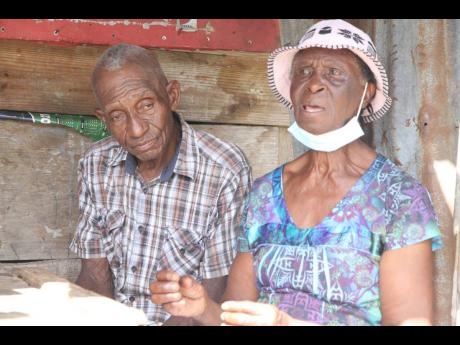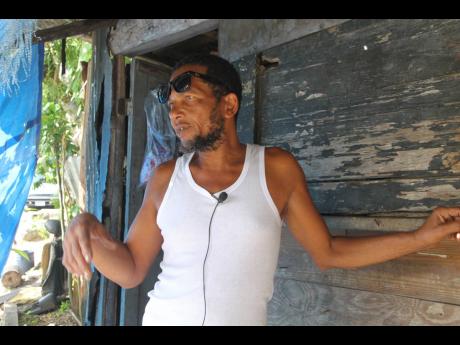‘We need another Edwin Allen’
Nine Turn, Clarendon residents yearn for changes to wake sleepy township
Nestled in the northern area of Clarendon is the sleepy community of Nine Turn, where the houses are scattered from each other with one common denominator, lush trees in the yard and lots of vegetation.
There is also a cluster of shops – some which look like nothing more than little huts, while others are built a bit more sturdily. Yet all of them share a similarity – the struggle to sell, restock and make a decent living.
Still, the owners try as they battle the reality that some customers will trust (take goods on credit) and settle their debts, while others develop amnesia soon after taking the goods on credit.
Leopold and Ena Hamilton, a couple who runs a shop in the community, told The Gleaner that they are finding it hard to survive.
“Let me tell you, miss, it hurt, it hurt. Wi did have a man around the place name Edwin Allen, him was every ting to wi. He was a Labourite, but him see to the Labourite and him si to di PNP...him never partial. From Nine Turn, anywhere you teck it, he was there for you,” Ena reminisced on the late former Minister of Education Edwin Leopold Allen.
During his tenure serving the constituency, he was regarded as the elder statesman of local politics. Allen, who died at age 78 on February 19, 1984, was also credited with establishing the 70-30 ratio of primary to preparatory school Common Entrance fee-place scholarship to favour children from poorer schools.
It is this kind of representation the Hamiltons are now pining for, as they say that is the only solution to turning their community around.
“The community is slowly dying. There is no work for the young people. Is only a little farming, and we not getting anything. The COVID come in and it mek tings worse; nothing working for me,” Leopold complained, as he said even when he goes to the market with a little goods to sell, the competition is so fierce that he hardly makes a sale. And when his wife stocks the shop they operate, some residents trust and cannot repay.
This, he said, puts a big dent in their bottom line as they have to somehow find the money to restock their shop. Ena, who also jerks chicken and does a little cooking, said she sells the food on credit and when her customers don’t pay, she must take the loss and cover the cost.
“This throw out our business right out of line; it not good. When dem trust mi, mi might ask dem two times. Mi nah ask dem three times ‘cause dem not coming back come trust nutten, but I have to find back the money,” Ena complained.
What hurts her most is that after customers trust and refuse to settle their bills, they then move on to another shop in the community to repeat the process.
As much as they have to take the bad with the good regarding the trusting of goods, Ena and another shop owner who sells snacks, Michael Wright, shared that it is a big deal for the community.
“The reality is dat nuff a di youth dem nah work, so more time we haffi trust dem, but den some caan afford fi pay back,” Wright said.
For Ena, the solution is for a factory to be built in the community, or some business that can generate employment for the young people.
Looking ahead, she sees a bleak future for her community, unless something is done to turn things around.
“The young people dem in the district not working, and it mek di district down, slow and poor. Dem need help, but the help whey dem want maybe it is not here; the opportunity is not here. We want a factory; Nine Turn needs more development,” she said.
Contemplating the future, according to Ena, takes faith, and that, too, is waning as she looks for changes to wake the sleepy town.


